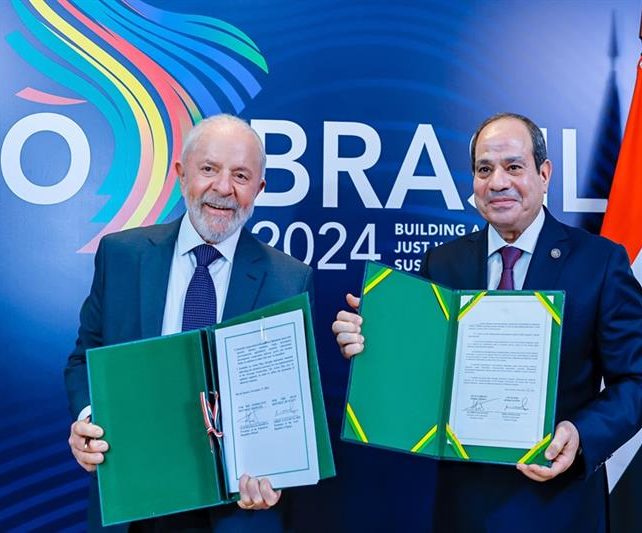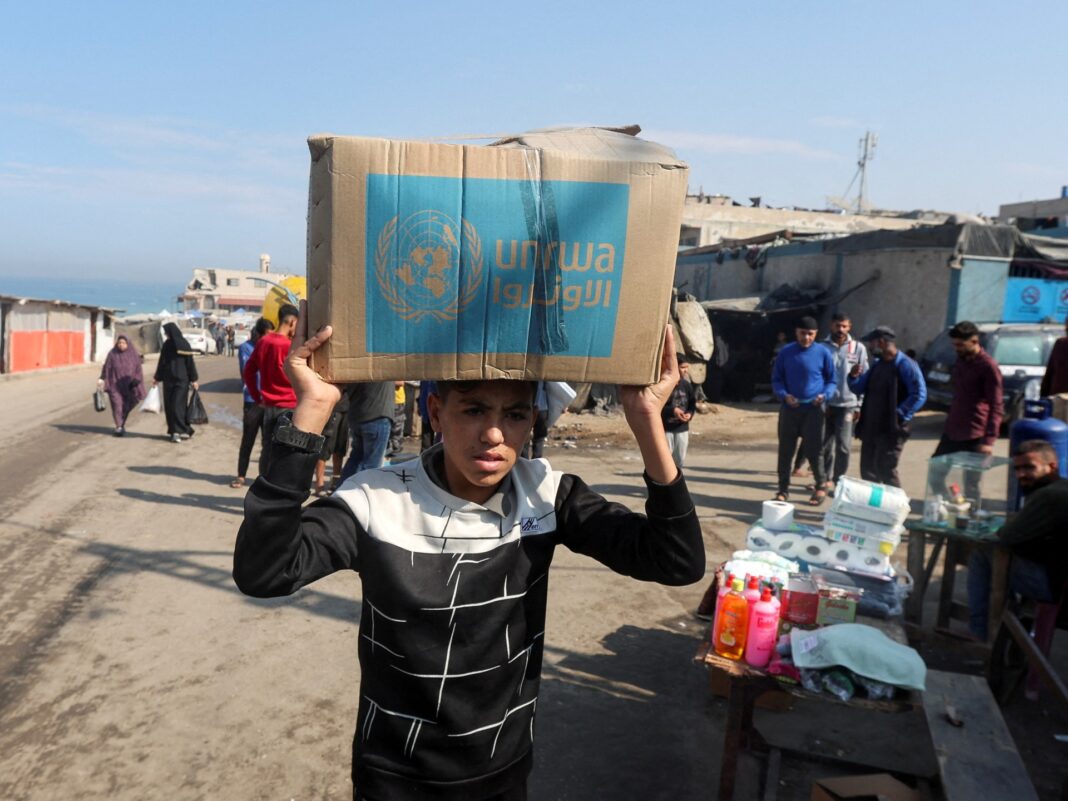In a significant diplomatic development on the sidelines of the G20 Summit at Rio de Janeiro, President Abdel-Fattah Al-Sisi of Egypt and President Luiz Inácio Lula da Silva of Brazil signed a joint statement establishing a strategic partnership aimed at deepening ties between the two nations.
The announcement, made after their meeting on Monday, marks a new chapter in a nearly century-long relationship that both countries are now poised to elevate.
The accord underscores Egypt and Brazil’s shared commitment to the principles enshrined in the United Nations Charter and international law. According to the joint statement released by the Egyptian presidency, the partnership is designed to enhance dialogue, foster greater diplomatic engagement, and encourage reciprocal high-level visits.
A Comprehensive Plan for Collaboration
Central to the agreement is a pledge to address the social and economic development priorities of both countries while ensuring mutual benefits.
The new partnership framework is set to intensify cooperation in fields ranging from politics, diplomacy, and security to trade, investment, agriculture, and technology. Cultural exchanges, tourism, and sports are also on the agenda, alongside collaborative efforts in education and sustainable development.
An action plan will be crafted to identify specific initiatives to bring these goals to fruition, leveraging existing diplomatic channels to streamline the process.
Both leaders used the occasion to advocate for reforms to the current international order. In a shared vision for global governance, they emphasized the need to reform institutions like the United Nations, particularly the Security Council, to better reflect the realities of the 21st century. The statement highlighted the importance of making these institutions more representative, legitimate, and effective.
The two countries, both members of the BRICS grouping reaffirmed their commitment to promoting multilateralism. The partnership aligns with their mutual foreign policy objectives, including the reform of the global financial system.
Strengthening Economic Ties
The agreement comes against a backdrop of robust economic engagement between Egypt and Brazil. The two nations maintain a significant trade relationship, with bilateral trade volume reaching USD 3.4 billion (EGP 167 billion) in 2023. Egypt is Brazil’s second-largest trading partner in Africa and has benefitted from its free trade agreement with the MERCOSUR bloc, signed in 2010.
As BRICS partners, both countries aim to leverage their cooperation to boost trade in the near future, aligning with the broader goals of enhancing economic integration among developing economies.
During the summit, President Al-Sisi commended Brazil’s effective organization and its prioritization of developing nations’ concerns, particularly the launch of the Global Alliance Against Hunger and Poverty. The initiative seeks to mobilize resources to combat hunger through targeted public policies and innovative social technologies.
For his part, President Lula expressed appreciation for Egypt’s active engagement in G20 discussions, noting its consistent advocacy for the needs of developing countries.
The two leaders also took a unified stand on the Palestinian issue, emphasizing the urgent need for stability in the Middle East.
President Al-Sisi reiterated Egypt’s efforts to mediate an immediate ceasefire in Gaza and Lebanon, while praising Brazil’s long-standing support for the Palestinian cause. Both presidents called for the implementation of a two-state solution and urged the global community to recognize Palestinian statehood, rejecting any attempts to undermine this objective.
Though not a member of the G20, Egypt has participated in the forum as a guest nation for the fourth time. The country previously attended under the presidencies of China, Japan, and India in 2016, 2019, and 2023, respectively.
The G20, comprising the world’s largest economies, plays a pivotal role in addressing global economic challenges, accounting for roughly 80 percent of global GDP and 75 percent of international trade.
The summit is set to take place on Monday and Tuesday, 18 and 19 November.


